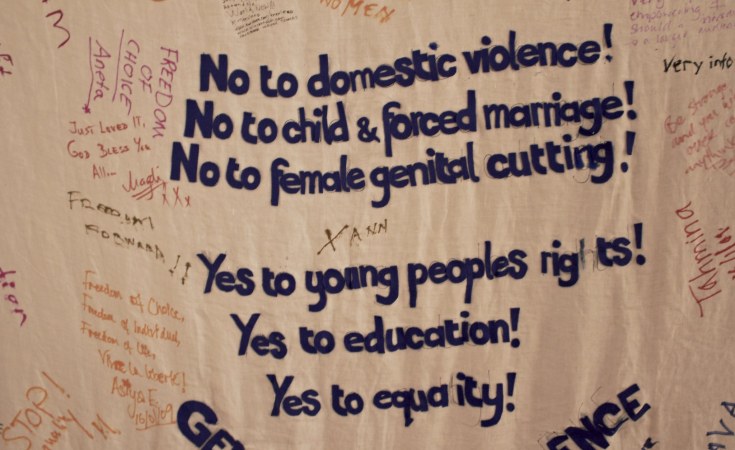The report further noted that eight per cent of girls aged 0-14 years have undergone FGM, down from 25 per cent in 2016.
A new report has revealed that Kwara and Ekiti States recorded the highest levels of Female Genital Mutilation (FGM) between 2016 and 2021 with 58 and 50 per cent of total cases respectively of total cases.
The 2021 Multiple Indicator Cluster Survey (MICS), which was developed by the United Nations Children's Fund (UNICEF) showed a significant decrease in the cases of female genital mutilation in Nigeria.
Implemented by the National Bureau of Statistics (NBS), the survey noted that 15 per cent of women aged 15-49 years have undergone FGM, down from 18 per cent in 2016.
The report further noted that eight per cent of girls aged 0-14 years have undergone FGM, down from 25 per cent in 2016.
While Kwara and Ekiti States accounted for more of the cases recorded among women aged 15-49 years, the lowest levels of FGM are found in Gombe and Zamfara states with no cases.
FGM is defined by the World Health Organisation as any procedure that involves partial or total removal of the external genitalia and, or injury to the female genital organs for non-therapeutic reasons.
The survey was launched Tuesday alongside the National Immunisation Coverage (NIC) Survey Report by Nigeria's Vice President, Yemi Osinbajo, who was represented by the Minister of Finance, Budget and National Planning, Zainab Ahmed.
FGM in Nigeria
Before 2016, a report by the Federal Ministry of Women Affairs supported and published by the United Nations Population Fund (UNFPA) in 2021 stated that an estimate of 19.9 million women and girls were cut between 2004-2015, which made the country the third highest burden for FGM globally after Ethiopia (23.8 million) and Egypt (27.2 million).
"There are wide variations in the practice of FGM across communities in Nigeria either openly or in secret regardless of the constitutional provision against torture and human degradation," the report noted.
"All the six largest ethnic groups (Yoruba, Hausa, Fulani, Ibo, Ijaw and Kanuri) practice FGM, the prevalence is however lowest among the Kanuris (5.6 per cent)."
It further noted findings from the National Demographic and Health Survey (NDHS) which revealed that Nigeria experienced a decline in the prevalence of FGM from 30 per cent in 2008 to 20 per cent in 2018 among women aged 15-49 years.
MICS Survey
The MICS Survey is a household survey developed by UNICEF to assist countries in filling data gaps for monitoring human development indicators in general and the situation of children and women, in particular.
It has evolved over the years to respond to changing data needs, expanding from 28 indicators in the first round in 1999 to 200 in its current sixth.
The NBS implemented MICS which provides data on child mortality, health, nutrition, education, child and social protection, women's healthcare and empowerment, water, sanitation and hygiene, while NICS assesses vaccination coverage provided through the health systems.


